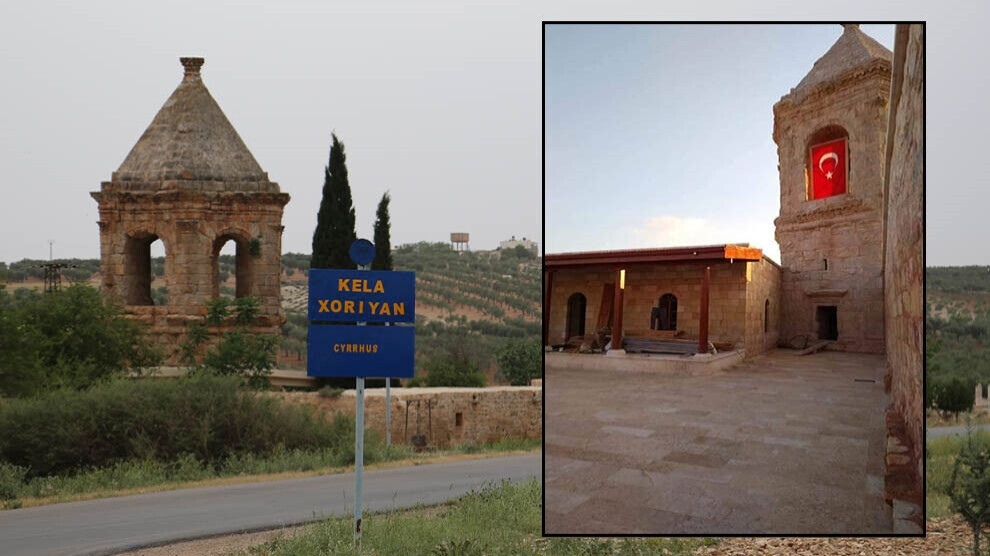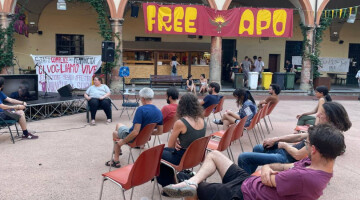The Turkish state foundation administration has converted the mausoleum of Nebi Huri in occupied Afrin into a mosque. In doing so, Turkey is creating new facts in its goal of committing a cultural genocide in addition to a physical genocide and leaving Rojava without a historical and social memory.
The mausoleum of Nebi Huri (Prophet Huri), who was revered as a wish-fulfilling Sufi by both Muslims and Christians, is located outside the city walls of the Hellenistic site of Cyrrhus, located in present-day Shera district near Afrin, in the area of Çiyayê Kurmênc (Jabal al-Akrad, Eng. Mountain of the Kurds). The city was founded by Antigonos I Monophthalmos around 300 BC by the Seleucids.
In Byzantine times, Cyrrhus was the capital of the province of Cyrrhestica in the Diocese of the East. Under Bishop Theodoret, the city became a popular destination for pilgrimages. The tower building called Mazar an-Nabi Huri from the 2nd or 3rd century was still considered an important pilgrimage destination until before the Turkish invasion of Afrin. Adjacent to the west is the former Roman cemetery, which was used as an Islamic burial site with some elaborately designed tombstones. In Islamic times, the mausoleum was given a new origin legend and received a mosque as an annex. The name Nebi Huri was transferred to the whole ruined area by the locals in the course of time.
The entire structure, including the pavement, was still intact until the start of the Turkish war of aggression against Afrin. At the end of January 2018, the site of Cyrrhus, the mausoleum of Nebi Huri, and the Hittite temple of Ain Dara suffered severe damage as a result of air strikes by the Turkish army. Since the occupation of the region, looting and destruction of the world cultural heritage there has been taking place on a large scale. The jihadist militias commanded by Turkey have now stolen all the items, including precious mosaics from Cyrrhus as well as Ain Dara. Satellite imagery suggests that both sites were bulldozed in 2019 and 2020.















